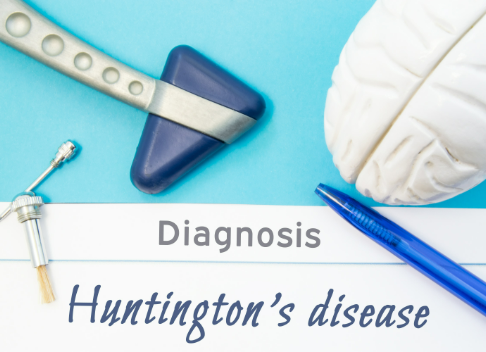Huntington’s Disease (HD) is a progressive neurological disorder caused by a genetic mutation, leading to involuntary movements, cognitive decline, and emotional disturbances. While there is no cure, advancements in treatment offer hope for improving quality of life.

Symptoms of Huntington’s Disease
- Uncontrolled movements (chorea).
- Difficulty with speech and swallowing.
- Cognitive decline and memory loss.
- Depression, mood swings, and anxiety.
Current Treatments & Therapies
Medications for Symptom Management:
- Tetrabenazine & Deutetrabenazine: Help control involuntary movements.
- Antidepressants & Mood Stabilizers: Manage emotional symptoms.
Physical & Occupational Therapy:
- Improves mobility, balance, and muscle strength.
- Helps with daily activities and adaptive techniques.
Speech Therapy:
- Aids with communication and swallowing difficulties.
Dietary Adjustments:
- Nutrient-rich, high-calorie meals help manage weight loss due to increased movement.
Promising Research & Emerging Treatments
? Gene Therapy: Researchers are exploring ways to silence or modify the faulty gene.
? Stem Cell Therapy: Investigating how stem cells can help repair brain damage.
? Neuroprotective Drugs: New medications aim to slow down disease progression.
While Huntington’s remains a challenging condition, medical advancements provide hope. If you or a loved one has HD, consider joining a clinical trial to access cutting-edge treatments.